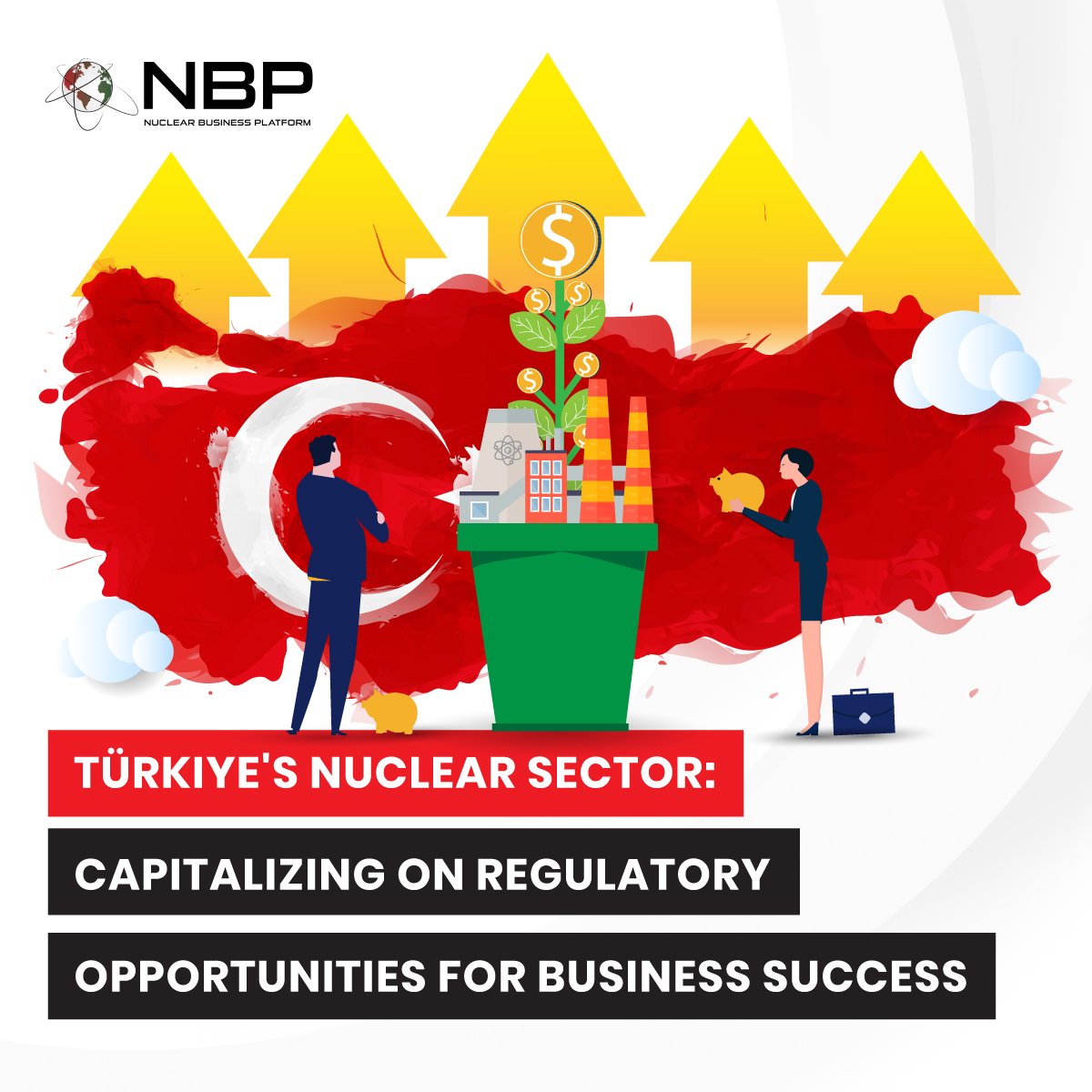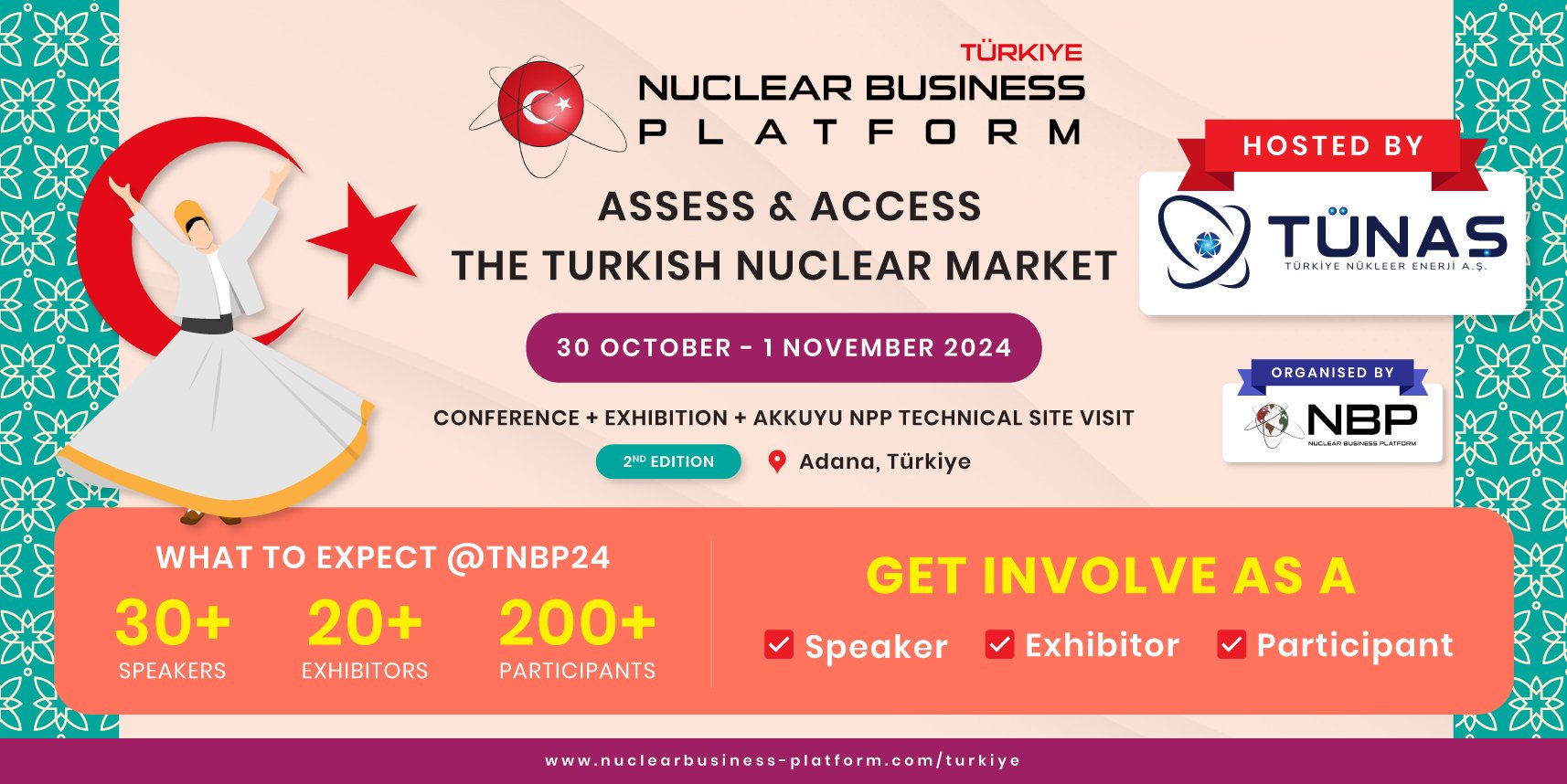Türkiye's Nuclear Sector: Capitalizing on Regulatory Opportunities for Business Success
The pivotal role of robust regulation in the nuclear energy sector is indispensable for ensuring safety, security, and compliance with international standards. As Türkiye charts its transformative course in nuclear development, including the Akkuyu Nuclear Power Plant (NPP) and two proposed NPPs, with a target of reaching 10,000 MW nuclear capacity by 2050, the need for comprehensive regulatory bodies becomes even more crucial.
The evolution of Türkiye's journey in establishing a robust regulatory framework for nuclear safety oversight commenced with the founding of the Atomic Energy Commission in 1956, later restructured as the Türkiye Atomic Energy Authority (TAEK) in 1982. However, the landscape shifted with the implementation of Statutory Decree Law No. 702, leading to the establishment of the Nuclear Regulatory Authority (NDK). The NDK assumed nuclear safety responsibilities from TAEK, which underwent a subsequent transformation into a research and development organization. This specific evolution highlights Türkiye's commitment to refining its regulatory structures to meet the demands of a burgeoning nuclear energy sector.
The NDK, founded on the principle of peaceful nuclear use, is mandated to safeguard employees, the public, the environment, and future generations from potential harm caused by ionizing radiation during nuclear energy and radiation-related activities. Covering nuclear safety, security, safeguards, radiation safety, and protection, the NDK issues regulations, conducts inspections, grants licenses, and ensures compliance with international standards. Collaborating with national and international organizations, the NDK engages in research and development and establishes radiation monitoring systems.
Türkiye has also made notable progress in establishing a comprehensive legal infrastructure for nuclear energy, enacting laws such as the Law on the Establishment and Operation of Nuclear Power Plants and the Sale of Energy in 2007. However, the establishment of the NDK in 2018 through Statutory Decree No. 702 faced a setback when the Constitutional Court invalidated the decree in 2020. In response, Türkiye re-established the NDK's legal foundation through the Nuclear Regulation Law No. 7381 and the Presidential Decree on the Organisation and Duties of the Nuclear Regulatory Authority No. 95 in March 2022, emphasizing the nation's commitment to nuclear safety and non-proliferation standards.
The pursuit of nuclear reactor technology diversification in Türkiye, while inherently challenging, presents invaluable opportunities for learning and growth. Acknowledging that this diversification introduces additional responsibilities for the regulatory authority, including the incorporation of Small Modular Reactors (SMRs), underscores the need for a comprehensive approach. Although the assimilation of diverse reactor technologies demands an investment of extra time and effort to build familiarity, it is essential to recognize that these technologies share fundamental similarities. During the Türkiye Nuclear Business Platform 2023, Mr. Ibrahim Halil Dere, Vice President of the NDK, expresses the NDK's readiness to tackle regulatory challenges, particularly in understanding and regulating diverse reactor technologies, including the complex domain of SMRs.
Additionally, in September 2022, the International Atomic Energy Agency (IAEA) conducted an Integrated Regulatory Review Service (IRRS) Mission in Türkiye. The mission's objective was to evaluate the effectiveness of Türkiye's regulatory framework concerning nuclear safety and radiation protection. The IAEA acknowledged Türkiye's initiatives in amending the legal framework, establishing the NDK in 2019 as an autonomous regulatory body, and instituting the Nuclear Technical Support Organization (NÜTED) to provide technical support for regulatory functions, encompassing review, assessment, and inspection. These actions underscore Türkiye's dedication to meeting global expectations and fulfilling international obligations in nuclear safety. The NDK has established bilateral agreements with regulatory authorities such as the International Atomic Energy Agency (IAEA), Organization for Economic Co-operation and Development Nuclear Energy Agency (OECD NEA), European Atomic Energy Community (EURATOM), and Western European Nuclear Regulators’ Association (WENRA).
What are the Business Prospects in Türkiye’s Nuclear Regulatory Sector?
In light of Türkiye's dynamic evolution in the nuclear regulatory sector, there arise compelling business opportunities that address both the needs and limitations within the industry. First and foremost, there is a burgeoning demand for legal consultancy services specializing in nuclear regulatory frameworks. National regulatory bodies from mature nuclear nations and companies with expertise in establishing and fortifying legal infrastructures can play a pivotal role in ensuring the stability and independence of regulatory bodies, mitigating potential legal challenges that may arise.
Moreover, as Türkiye embarks on the path of nuclear reactor technology diversification, there is an evident need for businesses offering specialized training programs and knowledge transfer services. These initiatives can facilitate a smoother learning curve for regulatory authorities and industry stakeholders, helping them adapt to new technologies, especially the complex landscape of Small Modular Reactors (SMRs).
For resource-intensive tasks such as regulatory inspections, assessment, and review, there is an emerging opportunity for companies providing technical and scientific support. Entities offering cutting-edge technological solutions and expertise, akin to what NÜTED provides, can position themselves as valuable partners in enhancing the efficiency of regulatory functions.
International collaboration being a cornerstone of Türkiye's nuclear regulatory strategy, organizations that can facilitate partnerships, joint ventures, and knowledge exchange with international organizations like IAEA, OECD NEA, EURATOM, and WENRA are likely to find lucrative opportunities in this sector.
In the next phase, it is imperative for stakeholders and businesses to align themselves with Türkiye's vision, leveraging their expertise to contribute to the nation's journey towards a secure, diversified, and globally compliant nuclear energy sector. As Türkiye continues to navigate the intricate challenges and opportunities in nuclear development, sustained collaboration and innovation will play pivotal roles in shaping the future of the country's nuclear regulatory landscape.



